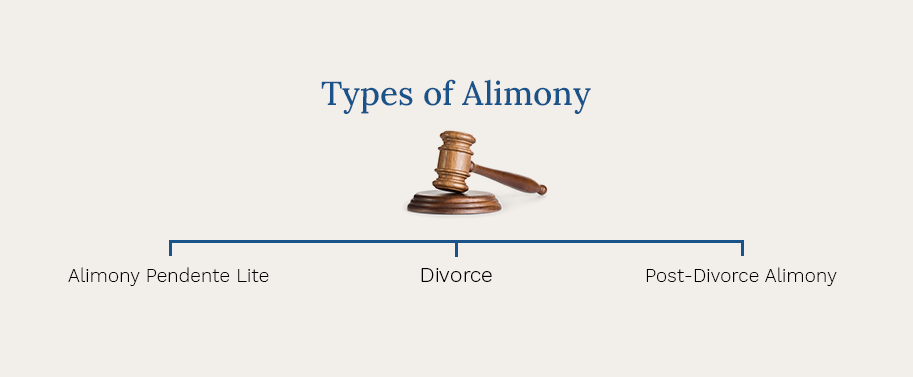
In This Article
Alimony is critical to divorce proceedings, providing financial assistance to a dependent spouse. Pennsylvania has laws and guidelines governing alimony, including factors considered in determining the nature of payment, duration and amount. This guide explores the intricacies of alimony in Pennsylvania, shedding light on the types and the factors divorce courts consider to calculate alimony.
Alimony is the financial support that a divorcing or divorced spouse receives from the other during divorce proceedings or after the divorce has been finalized. The gender-neutral term “spouse” is used because either party to the marriage may be ordered to pay. The primary aim is to help the receiving party meet their reasonable needs, which the divorce has impacted.
The rules vary across jurisdictions, although there are similarities. For example, the factors courts consider in determining alimony differ according to state laws. Thus, it’s essential to ascertain the variances according to your state to know how much you may be required to pay.
Alimony in Pennsylvania is governed by statute and case law. A statute is a law enacted by a legislature, such as the Pennsylvania General Assembly. Case law is based on judicial decisions or precedents. Chapter 37 of the Pennsylvania Divorce Code is the primary legislation that governs alimony in the state, although there are many judicial precedents.
Courts have the discretion to award alimony in Pennsylvania, meaning there is no automatic right or entitlement. In determining whether alimony is necessary, the judge will assess the case based on established factors before making a decision. These factors also assist the judge in deciding the amount, nature and manner of alimony payment.
Ultimately, the requesting party must require financial support to sustain themselves, and the paying spouse must be capable of providing the necessary support.
The two main types of alimony in Pennsylvania are alimony pendente lite and post-divorce alimony.
Alimony pendente lite is the financial support one spouse provides to the other pending divorce. In other words, the court awards alimony pendente lite during divorce proceedings — when the divorce has been filed but not finalized. The essence is to enable the lower-earning spouse to maintain their livelihood during the divorce process and to afford divorce-related costs.
Alimony pendente lite ends once the divorce is finalized. It may be awarded under the same guidelines provided for spousal support. Alternatively, a spouse may request that the court deviate from the guidelines if there is a greater financial need than those provided.
Post-divorce alimony is the financial support one spouse provides to the other after the divorce is finalized. The amount, nature and duration depend on the facts of the case. It can last for a definite or indefinite period. The purpose is to help the receiving spouse support themselves after the marriage is terminated. Post-divorce alimony is only awarded when necessary.

Spousal support is the temporary financial assistance provided to the lower-earning spouse during separation but before they file for divorce. Alimony is the financial support provided to a spouse during divorce proceedings or after the divorce is finalized. The primary difference lies in the timeline.
A second distinction is that the factors the court considers in determining alimony differ from spousal support. Whereas Pennsylvania law provides a guideline for calculating spousal support, alimony is based on specific influencing factors.
Equitable reimbursement is not alimony — it involves compensating a supporting spouse for investing in the other’s education. When one spouse financially assists the other with their education or training during the marriage, but divorce happens before the benefit is realized, the court may award equitable reimbursement to the spouse who provided financial support to the other. Judges usually consider whether the supporting spouse benefited from the other’s increased capacity and order periodic payments based on fairness.
There is no specific formula to calculate alimony in Pennsylvania. Judges have the discretion to determine the amount, among other things, based on 17 factors. Here are five examples:
Before engaging in an alimony discussion, examining certain relevant financial documents is crucial. These include:
Acquiring and examining these documents gives the parties a comprehensive understanding of the financial situation. These documents assist with negotiation based on facts and help determine practical and achievable goals.
Alimony negotiations require skill, which is acquired through practice and experience. The parties must know the divorce laws, appreciate the facts and possess relevant techniques to achieve the desired outcome. That’s why it’s best to seek legal representation.
Trusted divorce lawyers are trained professionals who can guide you throughout the negotiation process. They can evaluate your case and predict possible outcomes, which helps develop strategies. Partnering with an attorney can increase your chances of success.
Below are answers to some frequently asked questions:
Judges in Pennsylvania determine alimony based on 17 factors, including the following:
A person may be disqualified from alimony if they are self-sufficient. Judges typically award alimony when necessary, considering the facts of the case and established factors.
Yes, spousal support is the financial payment ordered by the divorce court during separation but before the divorce is filed. Alimony is the monetary payment ordered during the pendency of a divorce or after the divorce has been finalized.

Johnson Duffie has provided legal support to clients in Pennsylvania for decades. Our trained and professional attorneys know the challenges of divorce and are ready to guide you from start to finish. We provide supportive services with aggressive representation, developing efficient strategies for each situation. Are you looking for tailored legal solutions? Contact us today!
